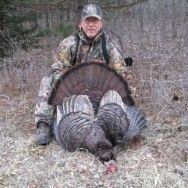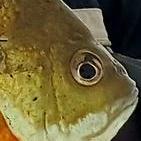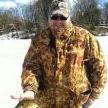Lake Weed Spraying Feed Back...
-
Your Responses - Share & Have Fun :)
-

-
.thumb.jpg.5c1a86e9339e49e53f5bfefed2220054.jpg)
By LakeofthewoodsMN · Posted
On the south end... The big basin, otherwise known as Big Traverse Bay, is ice free. Zippel Bay and Four Mile Bay are ice free as well. Everything is shaping up nicely for the MN Fishing Opener on May 11th. With the walleye / sauger season currently closed, most anglers are targeting sturgeon and pike. Some sturgeon anglers are fishing at the mouth of the Rainy River, but most sturgeon are targeted in Four Mile Bay or the Rainy River. Hence, pike are the targeted species on the south shore and various bays currently. Pike fishing this time of year is a unique opportunity, as LOW is border water with Canada, the pike season is open year round. The limit is 3 pike per day with one being able to be more than 40 inches. All fish 30 - 40 inches must be released. Back bays hold pike as they go through the various stages of the spawn. Deadbait under a bobber, spinners, spoons and shallow diving crankbaits are all viable options. Four Mile Bay, Bostic Bay and Zippel Bay are all small water and boats of various sizes work well. On the Rainy River... Great news this week as we learned sturgeon will not be placed on the endangered species list by the U.S. Fish and Wildlife Service. The organization had to make a decision by June 30 and listing sturgeon could have ended sturgeon fishing. Thankfully, after looking at the many success stories across the nation, including LOW and the Rainy River, sturgeon fishing and successful sturgeon management continues. A good week sturgeon fishing on the Rainy River. Speaking to some sturgeon aficionados, fishing will actually get even better as water temps rise. Four Mile Bay at the mouth of the Rainy River near the Wheeler's Point Boat Ramp is still producing good numbers of fish, as are various holes along the 42 miles of navigable Rainy River from the mouth to Birchdale. The sturgeon season continues through May 15th and resumes again July 1st. Oct 1 - April 23, Catch and Release April 24 - May 7, Harvest Season May 8 - May 15, Catch and Release May 16 - June 30, Sturgeon Fishing Closed July 1 - Sep 30, Harvest Season If you fish during the sturgeon harvest season and you want to keep a sturgeon, you must purchase a sturgeon tag for $5 prior to fishing. One sturgeon per calendar year (45 - 50" inclusive, or over 75"). Most sturgeon anglers are either a glob of crawlers or a combo of crawlers and frozen emerald shiners on a sturgeon rig, which is an 18" leader with a 4/0 circle hook combined with a no roll sinker. Local bait shops have all of the gear and bait. Up at the NW Angle... A few spots with rotten ice, but as a rule, most of the Angle is showing off open water. In these parts, most are looking ahead to the MN Fishing Opener. Based on late ice fishing success, it should be a good one. -

By leech~~ · Posted
Nice fish. I moved to the Sartell area last summer and just thought it was windy like this everyday up here? 🤭 -

By Rick G · Posted
Crazy windy again today.... This is has been the norm this spring. Between the wind and the cold fronts, fishing has been more challenging for me than most years. Panfish have been moving in and out of the shallows quite a bit. One day they are up in the slop, the next they are out relating to cabbage or the newly sprouting lilly pads. Today eye guy and I found them in 4-5 ft of water, hanging close to any tree branches that happened to be laying in the water. Bigger fish were liking a 1/32 head and a Bobby Garland baby shad. Highlight of the day way this healthy 15incher -

By monstermoose78 · Posted
-

By monstermoose78 · Posted
As I typed that here came a hen. IMG_7032.mov IMG_7032.mov -

By monstermoose78 · Posted
So far this morning nothing but non turkeys. -

By monstermoose78 · Posted
Well yesterday I got a little excited and let a turkey get to close and I hit the blind!! -

By smurfy · Posted
good......you?? living the dream..in my basement playing internet thug right now!!!!!! 🤣 working on getting the boat ready.......bought a new cheatmaster locator for the boat so working on that. waiting for warmer weather to start my garden!!! -

By monstermoose78 · Posted
How is everyone doing? Holy moly it’s chilly this morning I stayed in bed and will hunt later today when it warms up.
-

Recommended Posts